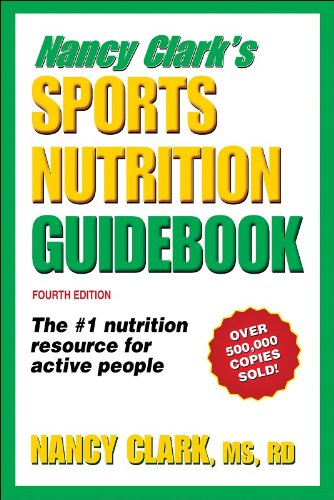
The article was written by Lisa Bonet
Audiences around the world know that when it comes to adrenalin-fueled performances which reflect the very height of human achievement, few are quite as appealing as urban sports and entertainment shows. Whether you’re into popping and locking, piercing the air with your mountain bike or slam dunking baskets like there was no tomorrow, chances are, you probably put your body through quite a tough physical challenge on a regular basis. What makes high-impact sports performances so taxing on the body are the movements involved – jumps, jolts and sprints – which impose your body to a lot of wear and tear. It is therefore vital to feed your body with the fuel it needs to ensure that issues such as muscular degeneration and bone and joint conditions, are not issues you have to face when you are older.
Nutritional Tips for Before the Event:
Pre-event nutrition should centre around two main aims: fueling your muscles and avoiding digestive upset. To power up for the performance of a lifetime, make sure to:
Time Your Meals Properly: Give yourself three to five hours to digest a large meal, two to three hours for a small meal and one to two hours for small snacks. If your performance or competition will be taking place in the morning, make sure you consume a high-carbohydrate meal the night before. Try to stick to low- or moderate- Glycaemic index foods The Glycaemic index measures how much and how quickly food causes your blood sugar to rise. Simple sugars cause glucose levels to spike, while more complex carbohydrate sources like bananas, raisins, pasta or oatmeal, will avoid the dreaded sugar rush (which is always followed by a crash, leaving you fatigued and sluggish). A typical meal favoured by athletes prior to competition is pasta with tomato sauce. A little protein in your meal is acceptable but keep it to a minimum and avoid foods which can be difficult to digest (like peanut butter or cheese) in favour of ‘lighter’ proteins like cottage cheese or eggs.
In her book, Sports Nutrition Guidebook, Nancy Clark provides a very useful guide for meal times:
For an 8am event, consume a high-carb dinner the evening before (at around 6:30pm). Aim for a 2000-2400 meal and drink extra water.
For a 10am event: As above, but also have your usual breakfast, making sure to finish your meal by around 7-8am (to allow time for digestion).
For a 2pm event: Have a high-carb breakfast and lunch (or have a big brunch), ensuring you have finished your meal by 10am. Drink lots of water from the day before and until 12pm of the day of your performance.
For an 8pm event: Drink lots of water all day. Have a high-carb breakfast and lunch, and dinner (you should finish your meal by around 5pm). You can also opt for a lighter meal by 6-7pm.
For all-day events: Stop exercising two days prior to the event. Get plenty of rest the day before and have a high-carb breakfast, lunch and dinner. Have a light breakfast and snack every one-and-a-half to two hours throughout the day. Make sure to drink lots of fluid (if you feel thirsty it means you are already dehydrated) and have lunch if time permits.
Keep Stomach Upset at Bay: Avoid high-protein, high fat foods and don’t introduce any unfamiliar foods into your diets prior to competition. Try to consume bland foods, avoiding spices, onions, cabbage, broccoli and beans, which tend to produce gas in the gastrointestinal tract. High fibre foods and carbonated drinks should also be avoided a few hours prior to competition.
Water is Life: We mentioned drinking extra water but how much is enough? The night before the event, drink around three glasses of water before going to bed and between one and three glasses around 10 minutes before the event. If you are a smoker, consider quitting. Nicotine and the plethora of chemicals in cigarettes not only increase thirst; they dehydrate your body at a deeper level, wresting vital moisture from the cells that line your blood vessels. Kicking the habit has additional bonuses for your health and performance as a whole, favouring everything from your cardiovascular system to your immunity. If you are on medication to help you quit smoking, do as advised by licensedprescriptions.com, taking your medication “after you have eaten and with a drink to minimise the chance of digestive upset”.
Adopt Nutritional Strategies to Maximise Recovery After Your Performance As Well: After a big performance, you need to refuel glycogen stores in your muscle and liver, replacing fluid and electrolyte loss. Make sure to consume carbohydrates immediately after the event. Aim to consume around 1.2g/kg/h for the first 0-4 hours after an intense workout and afterwards, don’t have less than 7-10g of carbohydrates daily per kilogram of body mass. It is also a good idea to consume sports drinks right after an event, since they contain vital sodium, though interestingly, research indicates than many of these contain less sodium than the body needs to completely rehydrate. Therefore, it might be a good idea to add a bit of salt to your first post-performance meal.
You will also need to consume a small amount of protein post-exercise. An excellent choice is a carbohydrate/protein snack, which will encourage muscle protein synthesis. Try a sports bar, liquid meal supplement, cheese or tuna sandwich, cereal and milk or yoghurt and cereal or banana.
Finally, keep up the good work. Follow a sound nutritional program even when you’re not performing; it will boost your immunity and ensure your muscles are in tip-top condition for the next action-packed show!

